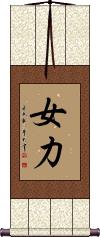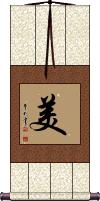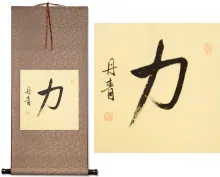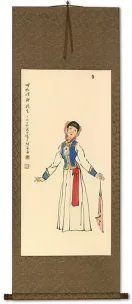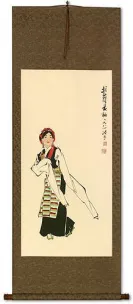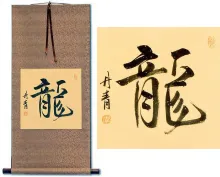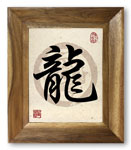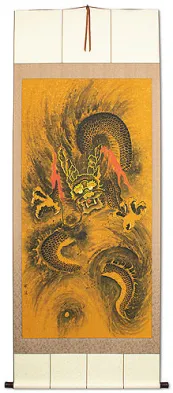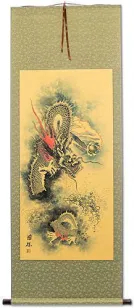Many custom options...
And formats...

Girl Power in Chinese / Japanese...
Buy a Girl Power calligraphy wall scroll here!
Personalize your custom “Girl Power” project by clicking the button next to your favorite “Girl Power” title below...
Girl Power / Woman Power
This can be read as “girl power,” “woman power,” “women empowerment” or “female strength.”
女力 is kind of a strange or unofficial title in Chinese and Japanese. At least, it's not common for a wall scroll.
This should be “onna ryoku” in Japanese but I found some who suggest it should be “me riki.”
Beauty / Beautiful / Handsome
美 is often used to describe the beauty of a woman.
However, when applied to a man, it can mean handsome. It's also the first character in the word for “beauty salon” which you will see all over China and Japan.
This can be used as the given name for a girl (spell it or say it as “Mei” or “May”).
For a bit of trivia: The title for the “USA” in Chinese is “Mei Guo” which literally means “Beautiful Country.” This name was bestowed at a time before Chairman Mao came to power and decided that China didn't like the USA anymore (even though we fought together against the Japanese in WWII). But these days, Chinese people love Americans (but have a distaste for American politics and policy). But I digress...
美 is also how “Beautiful” is written in Japanese Kanji and Korean Hanja. 美 can also mean: very satisfactory; good; to be pleased with oneself; abbreviation for the USA; fine; handsome; admirable; madhura; sweet; and/or pleasant.
See Also: Beautiful Woman | Beautiful Girl
This in-stock artwork might be what you are looking for, and ships right away...
Gallery Price: $65.00
Your Price: $39.77
Gallery Price: $90.00
Your Price: $35.00
Gallery Price: $65.00
Your Price: $39.88
Gallery Price: $65.00
Your Price: $39.88
Gallery Price: $240.00
Your Price: $138.88
Gallery Price: $240.00
Your Price: $148.88
Gallery Price: $240.00
Your Price: $138.88
The following table may be helpful for those studying Chinese or Japanese...
| Title | Characters | Romaji (Romanized Japanese) | Various forms of Romanized Chinese | |
| Girl Power Woman Power | 女力 | onna ryoku / onnaryoku | nǚ lì / nv3 li4 / nv li / nvli | nü li / nüli |
| Beauty Beautiful Handsome | 美 | bi | měi / mei3 / mei | |
Successful Chinese Character and Japanese Kanji calligraphy searches within the last few hours...
